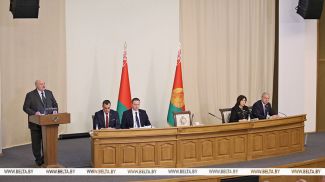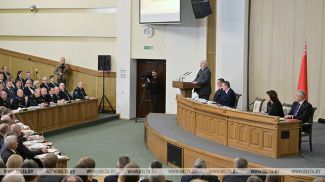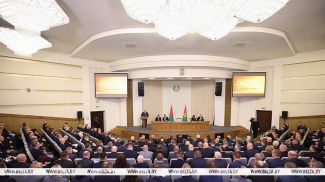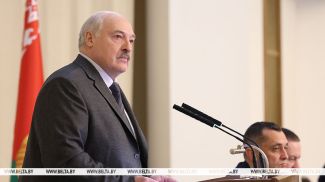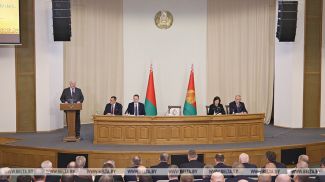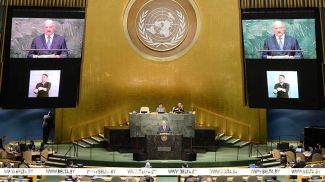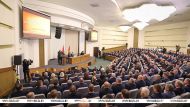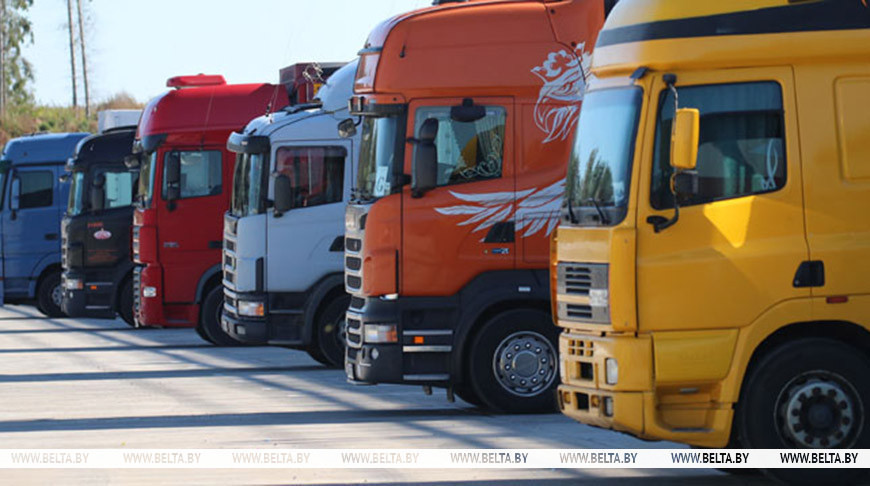
MINSK, 31 July (BelTA) – I will closely monitor the performance of the export sector, and I expect a significant improvement from you in this area, Belarusian President Aleksandr Lukashenko said during a meeting with Belarusian ambassadors and governors in Minsk on 31 July, BelTA has learned.
In response to a report from Industry Minister Andrei Kuznetsov, the president asked about the sector’s projected export figures for the year. "Are you falling behind on exports?" he asked.
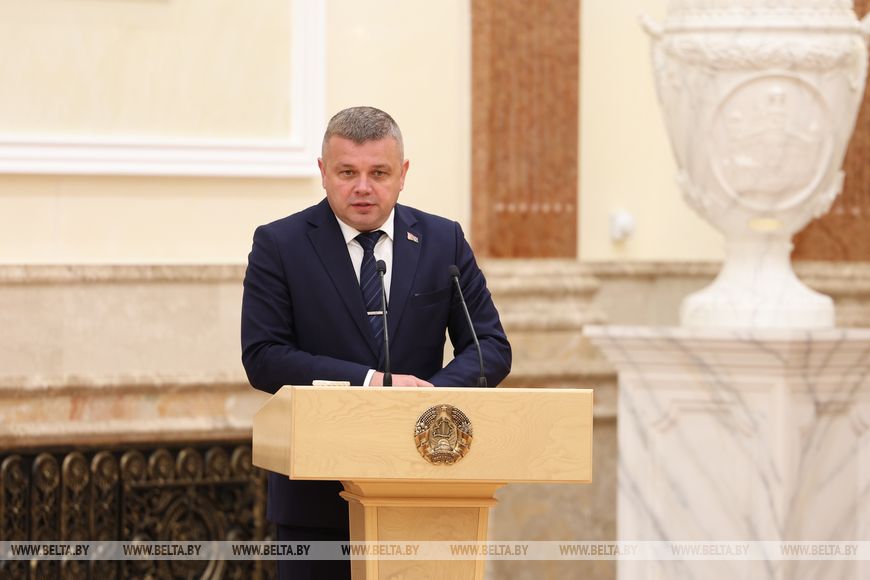
“Yes, we are facing a decrease of around 2-3% [year-on-year],” the minister confirmed. “We’re actively working on it.”
“I’ve warned the current prime minister about this several times, and now I’m warning you: I will demand results in this area in the strictest manner. And if, God forbid, you create problems for our enterprises, like Gomselmash and MTZ, you will only have yourself to blame. That’s why, together with the prime minister, you are responsible for delivering a breakthrough in exports,” Aleksandr Lukashenko pointed out.
The minister provided a detailed report on the current state of export activity in various countries, what promising contracts have been signed, and efforts to address problem areas. In 2024, export volume reached $6.5 billion, the highest figure in the last decade. Most products are supplied to the Russian market. Active efforts are underway to enter and secure a foothold in distant markets in Asia, Africa, the Middle East, and Latin America. Moreover, demand in the Russian market is currently declining, which primarily affects the overall export volumes. This makes diversification an especially important task.
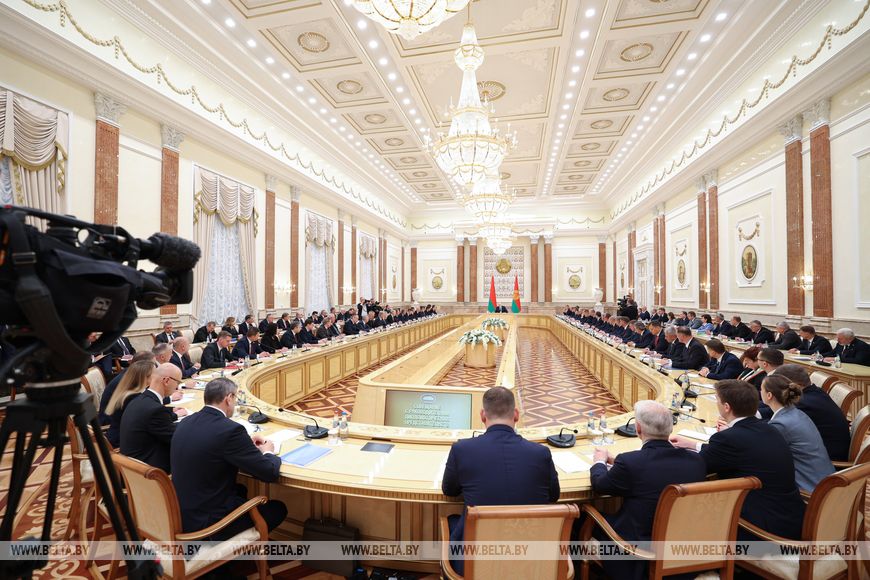
The focus is not only on the delivery of equipment. Emphasis is placed on service maintenance, provision of spare parts, and personnel training. This is especially important in countries such as Nigeria, Zimbabwe, Syria, Lebanon, Pakistan, Nicaragua, Vietnam, Iran and others, where work is being carried out to deliver equipment and other industrial products.
There are also untapped opportunities in CIS markets, Andrei Kuznetsov believes. The existence of large contracts will allow a 1.5-fold increase in export volume to distant foreign countries and a 30% increase to CIS countries excluding Russia by 2026.
The minister noted that partners in many foreign markets now express interest not only in purchasing equipment but also in achieving a certain level of localization. Belarusian enterprises are also engaging in this form of cooperation, as establishing joint production facilities provides additional support for the continued growth of industrial exports. "First and foremost, we will organize joint ventures in those countries where our equipment is sold and in demand, with the possibility of distribution to third countries. We consider the assembly of equipment with foreign partners one of our strategic areas of work," he emphasized.
Ambassador to Kazakhstan Aleksei Bogdanov reported on the progress in foreign trade using cooperation with Kazakhstan as an example. Over the past three years, mutual trade between Belarus and Kazakhstan has exceeded $1 billion. In January-May 2025, trade surged by 7.5%, with exports growing by 2.7%. The trade balance remains favorable for Belarus. Positive growth is being demonstrated by enterprises affiliated with the Belarusian Agriculture and Food Ministry, Belneftekhim, and the Belarusian Architecture and Construction Ministry. Negative trends have been observed in the performance of some companies under the Industry Ministry, Bellegprom, and Bellesbumprom.
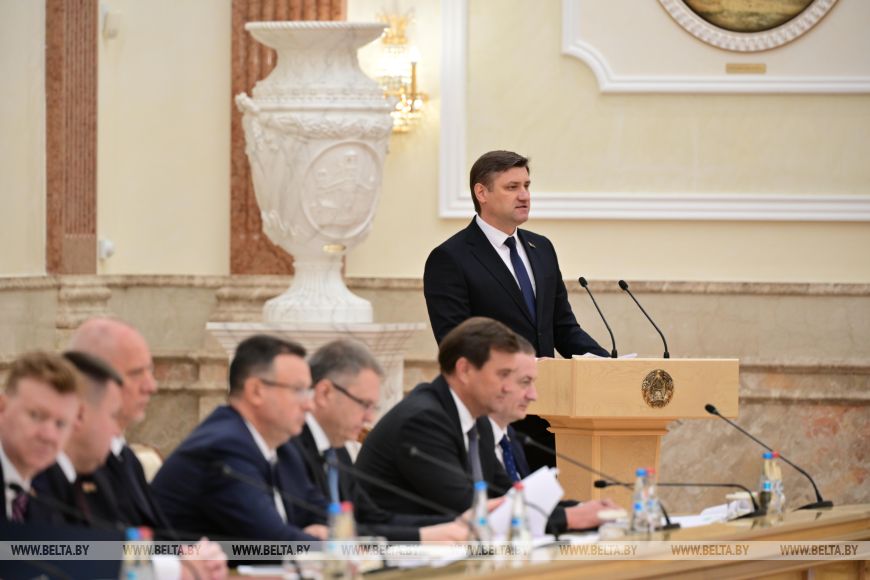
The ambassador pointed out that the machine-building sector in Kazakhstan faces intense competition from almost all major global manufacturers. Nevertheless, the embassy in cooperation with relevant enterprises and the sectoral ministry has developed a working strategy to recover lost ground and achieve targeted levels in the performance of assembly enterprises. New promising projects in this field are also being developed.
“The leadership and management of our industrial enterprises should implement new, more flexible approaches in shaping sales policies. Special attention should be paid to the quality and completeness of machine kits delivered to assembly facilities. It is essential to timely modernize the product lineup in accordance with current trends and customer requirements,” the diplomat outlined some of the key tasks.
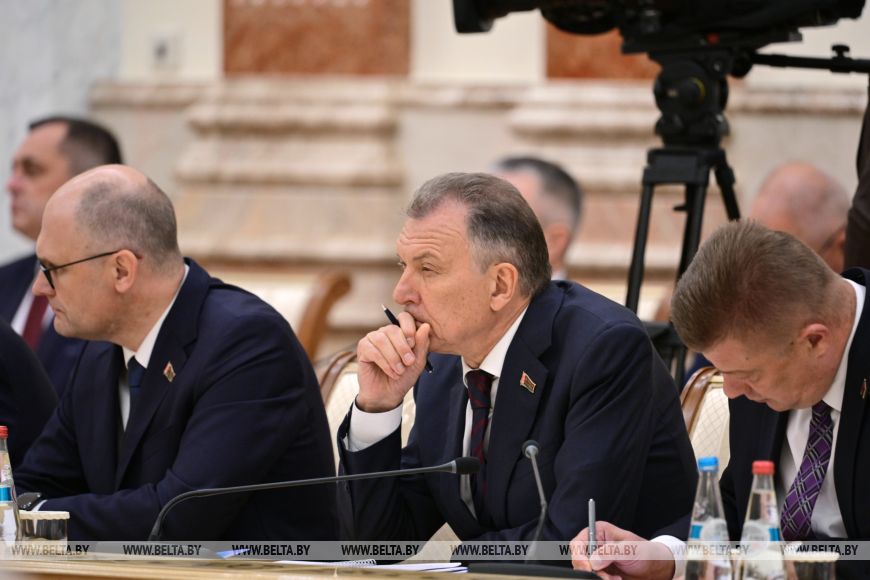
In recent years, Kazakhstan has actively pursued large-scale projects to develop dairy and beef cattle farming. The ambassador proposed a comprehensive approach in this direction, offering accompanying goods and machinery alongside milking and stall equipment, including products by the Belarusian National Biotechnology Corporation, veterinary preparations, and plant protection tools. “This will be our unique competitive advantage. No one else on the market is working this way,” he emphasized.
There are also plans to introduce Kazakh farmers more closely to Belarusian developments and expertise in agriculture. To this end, the first Belarus-Kazakhstan Agricultural Forum is scheduled to take place as part of the upcoming specialized KazAgro exhibition in October this year.
Another focus area is the supply of Belarusian consumer goods, which are in demand in Kazakhstan. Efforts are underway to increase the number of distributor companies cooperating with Belarusian enterprises and to expand their product ranges. This will help introduce new Belarusian enterprises to the target market. “We have learned to produce quality goods, but there is still work to be done in terms of marketing and customer engagement,” Ambassador Aleksei Bogdanov said.
Following the successful example of interregional cooperation between Belarus and the Russian Federation, Kazakhstan is expected to host the first forum of the regions of the two countries. The diplomat proposed to intensify regional cooperation between Belarus and Kazakhstan in the next two years.
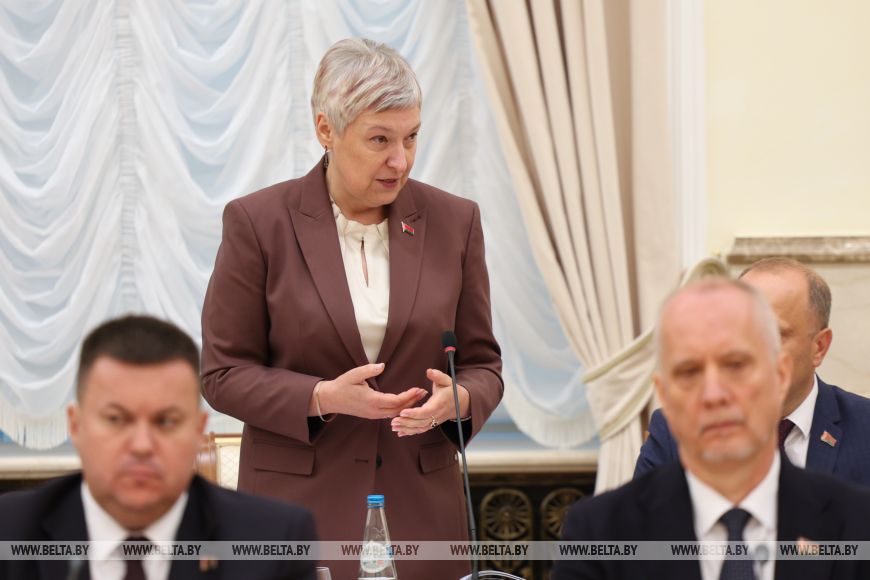
During the meeting, Chairperson of the National Statistical Committee Inna Medvedeva also drew attention to the negative export trend this year among several major industrial enterprises. She pointed out a number of other systemic issues as well, including challenges in market diversification and a significant volume of overdue receivables owed to domestic enterprises for delivered goods. Additionally, she noted the loss of market positions in several regions.
In turn, Chairman of the Board of the National Bank of Belarus Roman Golovchenko stressed that in recent years, despite sanctions pressure, Belarus managed not only to reorient its products to other countries’ markets but also to achieve record high export figures. However, he remarked that the current pace has slowed and the situation is changing. Roman Golovchenko supported a renewed focus on establishing joint ventures abroad and urged further efforts to enhance the price competitiveness of domestic products through tailored approaches targeting specific markets.
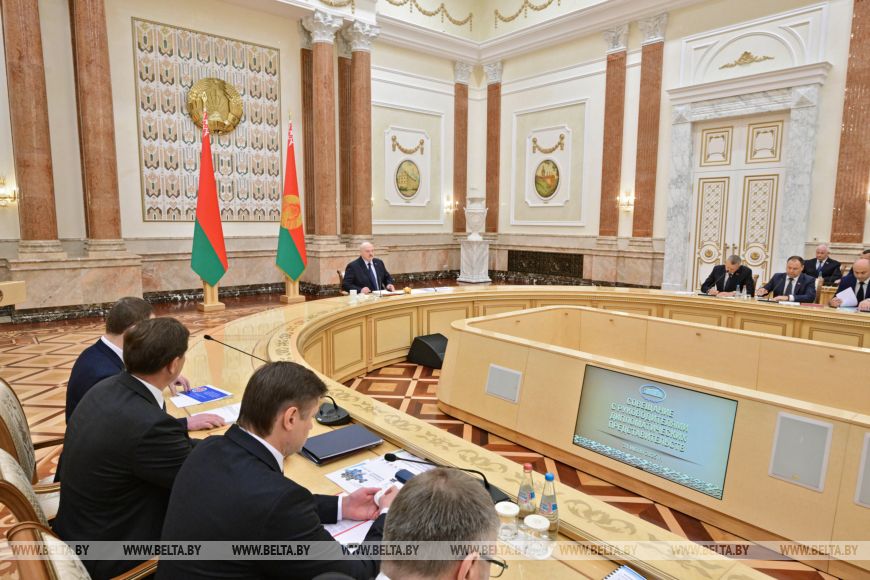
He also praised the potential of medium-sized businesses in the non-state sector, which currently account for around 40% of the country’s exports. “Among them are many who, with proper support, are capable of doubling or even tripling their exports. This must be taken into account,” Roman Golovchenko said.
Summing up the discussion, Aleksandr Lukashenko stated: “As for the assembly of spare parts, the creation of joint ventures and further localization, however difficult, these are things we cannot avoid if we want to stay in the game. Otherwise, we’ll have to close these facilities in the country and develop something indispensable to the world. But let’s be honest: we don’t currently produce anything the world can’t do without.”
The president emphasized the importance of using various methods to promote domestic products abroad and emphasized that ambassadors need to be aware of this. “So, gentlemen, let me reiterate: no matter how tough things may be, we must keep moving forward. There is no other path if we want to maintain our sovereignty and independence. You all want this, and our Foreign Affairs Ministry stands at the forefront in defending our sovereignty. So we must persist in our efforts. Every day and every hour, we must strive to achieve sovereignty and independence,” Aleksandr Lukashenko concluded.




